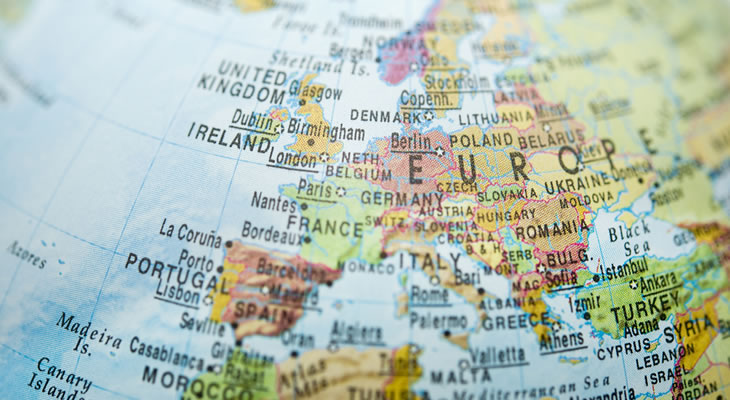The Pound Euro exchange rate was highly volatile on Wednesday after the UK government activated Article 50 and formally begun the Brexit process.
Weakness in the Euro allowed GBP EUR to remain above weekly lows, but Sterling movement was too jittery to sustain the day’s best gains.
A layer of uncertainty faded when Brexit began and Sterling trade is likely to cool in the coming weeks as analysts do not expect the first major Brexit developments until May or June – which is when UK-EU negotiation will begin in full.
The early days of these negotiations will have major implications for the long-term GBP EUR exchange rate, but until then the pair is more likely to react to domestic data and Eurozone political news.
[Published 09:40 BST 29/03/2017]
The Pound to Euro exchange rate fell as low as 1.14 on Tuesday night when it was confirmed that UK Prime Minister Theresa May had signed the Article 50 letter that would begin the Brexit process.
While GBP EUR recovered to trend above key support levels of 1.15 on Wednesday morning, Sterling demand remained mixed and its recovery was partially due to a weakening Euro.
With Pound Euro jittery ahead of the beginning of the formal Brexit process, some analysts are predicting there could be months or years of volatility ahead for the currency pair.
This week has already been a volatile one for GBP EUR. Both short-term and long-term outlooks for the exchange rate have shifted up and down in recent days.
For example, Tuesday morning saw reports emerge that the UK government was likely to edge away from its threat that it would prefer ‘no deal’ on Brexit than a bad deal.
This bolstered hopes for Sterling gains in the long-term amid market expectations that the government would aim for the best deal possible for Britain.
There have been downsides too, however. On Wednesday morning, UK Chancellor of the Exchequer, Philip Hammond, reiterated in an interview that the UK could not in fact ‘have its cake and eat it’.
Hammond stated that the Brexit would indeed have ‘consequences’ for Britain. This weighed on some remaining hopes that Britain would be able to cherry pick EU benefits such as single market access.
After uncertainty in recent weeks on whether the Brexit has been fully priced into Sterling or not, some analysts took the Pound’s Tuesday and Wednesday movement to mean that it hadn’t after all. According to Neil Wilson from ETX Capital;
‘A truly hard Brexit has not been priced into Sterling. We could see it move lower still if negotiations take a sour turn – (US)$1.10 is feasible.
The old hard v soft Brexit debate is once again central to expectations for the Pound. Sterling will rise on any indications of a softer Brexit and fall on any signs it’s going to be hard. If we head towards a cliff-edge then it could collapse.’
However, Brexit isn’t just a one-sided issue. While Britain could lose some EU benefits, the EU and Eurozone could also lose easy access to British services and travel. This has weakened the Euro this week.
Political concerns remain a persistent weight on Euro strength. Investors are still jittery on the possibility that France may elect anti-EU Presidential candidate Marine Le Pen who intends to withdraw France from the Eurozone in a ‘Frexit’.
Ultimately, volatility is still highly likely for GBP EUR in the coming days and the long-term outlook will be shifted dramatically depending on early negotiations. Brexit negotiations may not come into full swing until as late as May.
At the time of writing, the Pound to Euro exchange rate trended in the region of 1.15. The Euro to Pound exchange rate traded at around 0.86.


Comments are closed.